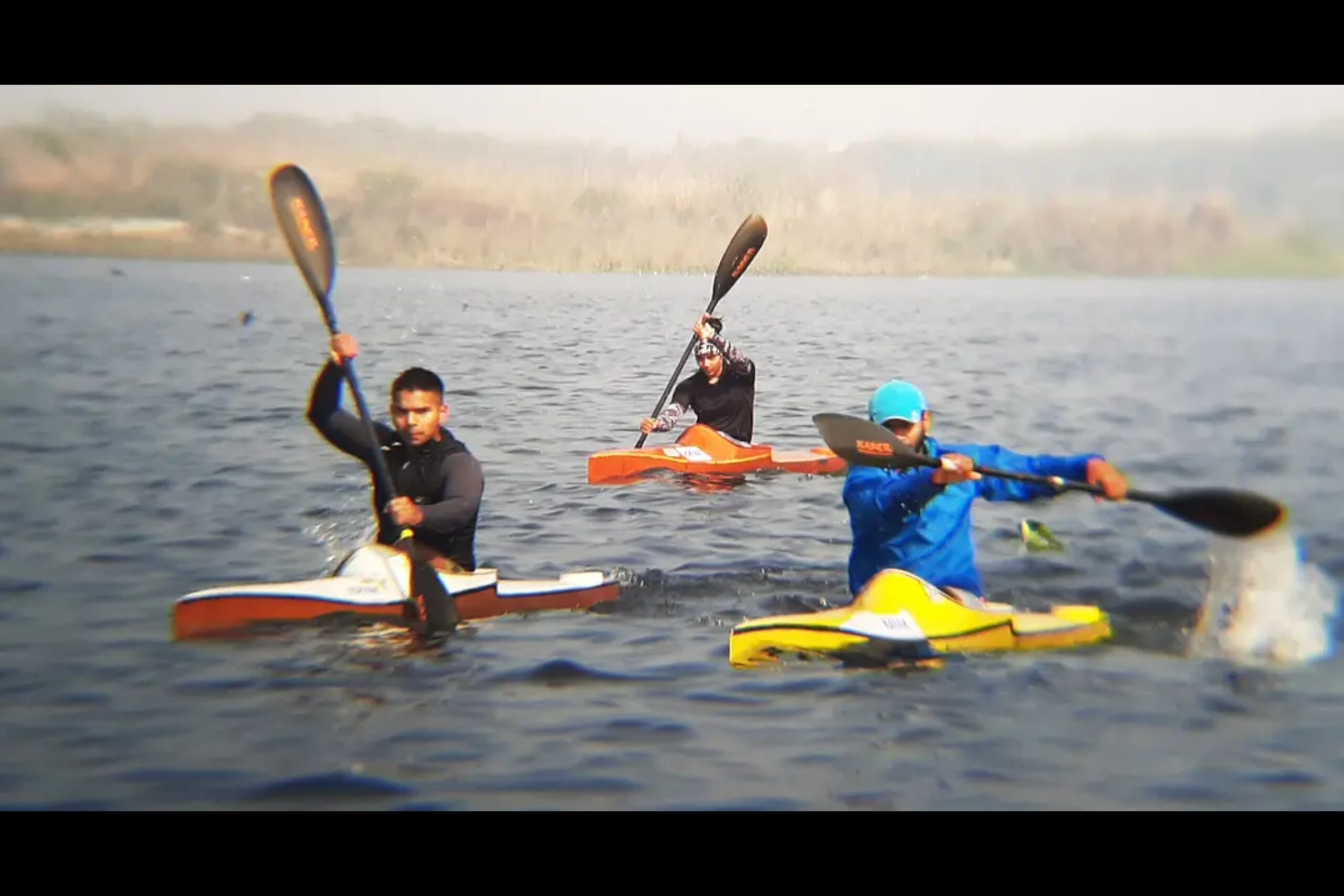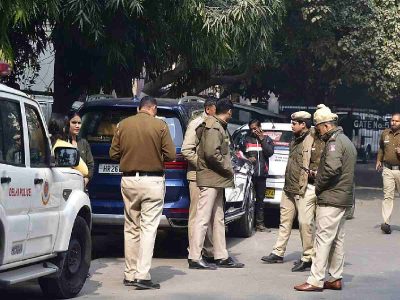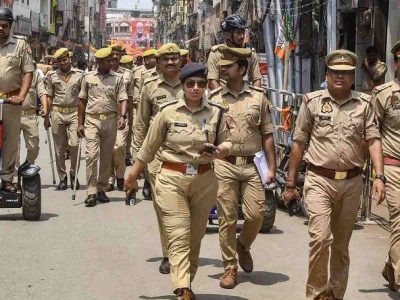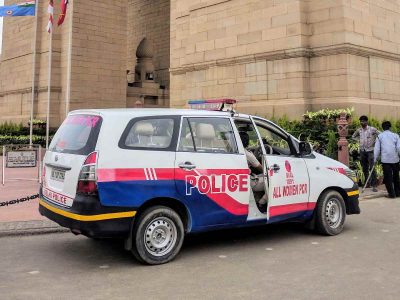The National Games, organized by the Indian Olympic Association (IOA), are scheduled to take place in Gujarat state across six metropolises from 27 September to 10 October. With the theme ‘Sports for Unity’, there will be 34 sports with over 7,000 competitors from all 28 states and seven Union Territories.
Excitement is high as the 36th National Games are being organized after a gap of seven years. While the last event was held successfully in Kerala in 2015, the games were delayed between 2018 and 2019 before being moved to 2020, when Covid-19 struck.
From Delhi, two players have been chosen for Canoe Slalom, two for Canoeing Sprint C-2 (500 metres). While the athletes are working hard for the upcoming tournament, some of them are deprived of basic facilities.
Many local political representatives, such as and BJP MP Manoj Tiwari, have visited the Sonia Vihar Water Sports Club and have met the youngsters themselves and have seen the problems our children confront on a daily basis still there has been no help or any efforts made for help from their side. Shekhawat further states that he has also tried reaching out to the Deputy Minister Manish Sisodia but has failed and feels it’s a shame that the administration is unaware of such rapid growing sports and the help that the sport requires.
Pathetic conditions
The coach, Manjeet Singh shekhawat, who has also represented India in canoeing, told Patriot about the ongoing preparations for the upcoming National Games. “Athletes are practicing three times a day with proper balanced training to improve endurance, strength, and agility under water.” It’s a proper mix of weight training, aerobics, and yoga to relax the mind.
Anyone over the age of 14 is welcome to attend the academy. There are at present roughly 50 students in the academy who, “if properly coached, can and will one day represent our nation”, as Shekhawat says confidently.
Before competing for a medal, an athlete must generally train for 3-4 years. “If you can commit yourself to the procedure during that period, the outcome will undoubtedly be great,” adds Shekhawat.
However, these are not the conditions a state-level athlete should be practicing in, says the coach, who has managed it for the last eight years. “We have invested around Rs 25 lakh in this setup for the recognition of this game and the players,” he says. The coach says that all the expenses of the club are being managed on their own steam, be it the equipment or the setup, as there has been no assistance from any government official even after winning national medals.
“There is no electricity in this area so our youngsters are not permitted to practice after sundown,” he points out. “We can’t afford a security guard. We’ve built improvised shelters here and requested some of our pupils to spend the night here to protect the equipment. We just recently began collecting money from youngsters following the pandemic; previously, it was provided free of charge to everybody.”
What bothers him is that officials have not even provided a portable restroom for the female players, though they are well aware of the players’ predicament.
Regardless, he is confident that since these athletes have performed well in major tournaments that the club has organized leading up to the national championship, he is hopeful that the athletes will bring home medals in their respective competitions.
Underrated sport
Manjeet Singh shekhawat emphasizes the state of water sports in Delhi, saying, “It is extremely difficult to find individuals who are interested in water sports and are physically and psychologically ready for it because the sport requires you to be courageous enough to go under water and perform.” The rising level of Yamuna waters is also a factor that deters children, particularly their parents, from participating in sports.
However, his own enthusiasm for canoeing is unmistakable. “It’s a fantastic game that can help you in a variety of ways,” he says. “Many of our students have received sports quota admission to top colleges or leading institutions. Many of our students have been selected. In Delhi, police and Border Security Force camps are next to our training facility.”
He goes on to remark that it is distressing that the majority of people are unaware of an internationally recognised sport that has been included in the Olympics since 1936.
He wants to spread awareness of the sport throughout the country.
Athletes’ journey
Mohit Bhagel, who will compete in the canoe slalom C-2 (500 metres) in the 36th National Games, tells Patriot about his journey. Bhagael recalls that he originally intended to major in boxing as a sport until one day while exercising at the Indira Gandhi Stadium, he and his pals spotted a boat in a pond. Hot and tired, they decided to try this water activity and he was hooked.
Bhagel just earned a bronze medal for Delhi, which qualified him for the 36th National Games. Bhagel has also represented the country and has won two medals for the country so far.
Kavita Bohra, a resident of Uttarakhand who will be Sumedha’s partner in C-2 (500 metres), discusses her hopes for the upcoming National Games. “I have really high expectations because I’ve won the last three sprints that I’ve played and that has added great confidence in my preparation and skill set,” she says.
She goes on to say that the coach has continuously aided and encouraged her in this game, whether it’s through training or instruction.
Sumedha Singh, who will compete in Canoe Slalom, told Patriot that it was her mother’s idea to join up for water sports, which is how she became acquainted with this activity. She has been canoeing since 2015, competing at the state level and recently won a 200-metre Canoe Sprint race to qualify for the National Games.
“Whether it’s eating, training, or rest, everything has been carefully planned to ensure that we make our sports club and, most importantly, our coach is proud after this tournament,” she adds.
Nidhi, who will also compete in the canoe slalom, talks to Patriot about the rigorous training regimen required for the national championship. “We practice 3-4 times a day in different sessions,” she says, adding that she is presently focusing on her technique and endurance, and that in the remaining 15 days, there will be specific programmes, such as weightlifting, for the pace that one must maintain when canoeing.
She also mentions the physical rigours of the game, saying, “I really had issues when pedalling.” To succeed in this game, strength is required to propel the boat ahead and you have to be an excellent swimmer, she points out.





